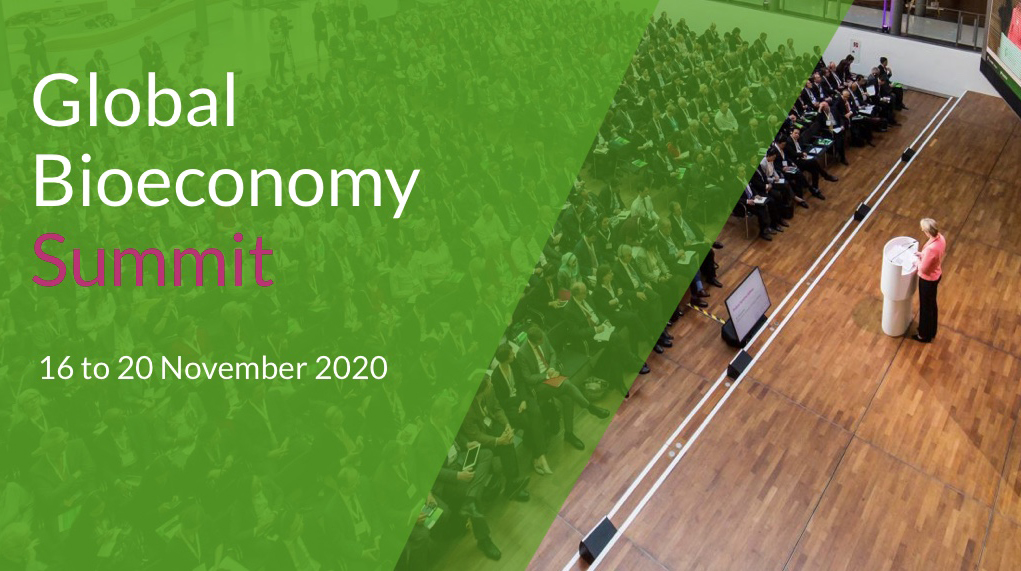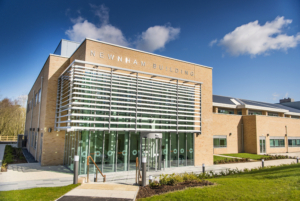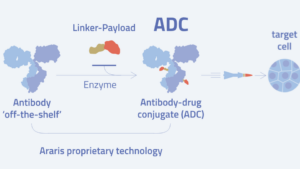
1,800+ experts will join the Global Bioeconomy Summit
More than 1,800 attendees already registered for the Global Bioeconomy Summit 2020. The conference takes place virtually from November 16 to 20.
5 plenary sessions, 12 interactive workshops, 100+ high-level speakers
The bioeconomy’s role of solving global crises
Communiqué and policy recommendations on how to further establish a sustainable bioeconomy
The GBS will again provide the platform to present several international report results. The Global Expert Survey will shed light on sustainability governance for the bioeconomy and the Global Bioeconomy Policy Report summarizes again how countries across the globe have integrated bioeconomy into governmental action. According to this latest research, the trend of developing dedicated bioeconomy policy strategies has prevailed in recent years with 19 countries and macro-regions (Austria, Costa Rica, EU, Finland, France, Germany, Ireland, Italy, Japan, Latvia, Malaysia, Nordic Countries, Norway, South Africa, Spain, Thailand, UK, US, East Africa)[1] having adopted strategies since 2010. In parallel, according to the authors, bioeconomy development is increasingly driven by the engagement of macro-regional and international actors as well as stakeholders from science, civil society and industry.
Industry, policy and science expertise represented
- Emily Chew, Global Head of Sustainability for Investment Management at Morgan Stanley
- Ray Dhirani, Head of Sustainable Finance, WWF-UK
- Agnes Matilda Kalibata, President of the Alliance for a Green Revolution in Africa (AGRA)
- Anja Karliczek, German Federal Minister for Education and Research
- Julia Klöckner, German Federal Minister of Food and Agriculture
- Emily LeProust, CEO, Co-founder and Director of Twist Bioscience
- Ipshita Mandal-Johnson, Global Bio Fund
- Frank Rijsberman, Director-General of the Global Green Growth Institute (GGGI)
- Jeffrey Sachs, Director of the Center for Sustainable Development at Columbia University
- Hiroyuki Kojima, Chief Innovation Officer, Ajinomoto Co., Inc
- Elspeth MacRae, Steering Group Member, IAC | Chief Innovation and Science Officer, SCION
- Marcus Remmers, Chief Technology Officer, Royal DSM
- Virgilio Mauricio Viana, Director General of the Sustainable Amazon Foundation (FAS)
- Brendan Edgerton, Director, Circular Economy at World Business Council for Sustainable Development
- Louise Fresco, President, Wageningen University
- Mary Maxon, Steering Group Member, IAC | Associate Laboratory Director for Biosciences, Lawrence Berkeley National Laboratory
- Michal Devir, Co-Founder and General Managing Partner at Rimonim Agro VC
Virtual exhibition on bioeconomy
A virtual world exhibition on bioeconomy will show how specific products can contribute to global sustainability goals. There is also a media corner again with books, games, teaching material and graphic novels on the subject of bioeconomy. In addition, GBS participants from all over the world present video clips about projects or ventures – from start-ups to large corporations.
Evening reception with food start-ups and guided tours in natural history museums
And the GBS participants don’t have to do without an evening reception either: On 19th November, among other things, they can look forward to a guided virtual tour in natural history museums in Berlin, Germany, and Paris, France. In addition, an innovative bio-based food menu is virtually presented by the food start-ups CellFarm, Knaerzje, Solar Foods and Yolélé.


 Microbiotica
Microbiotica Araris Biotech AG
Araris Biotech AG Freepik.com
Freepik.com